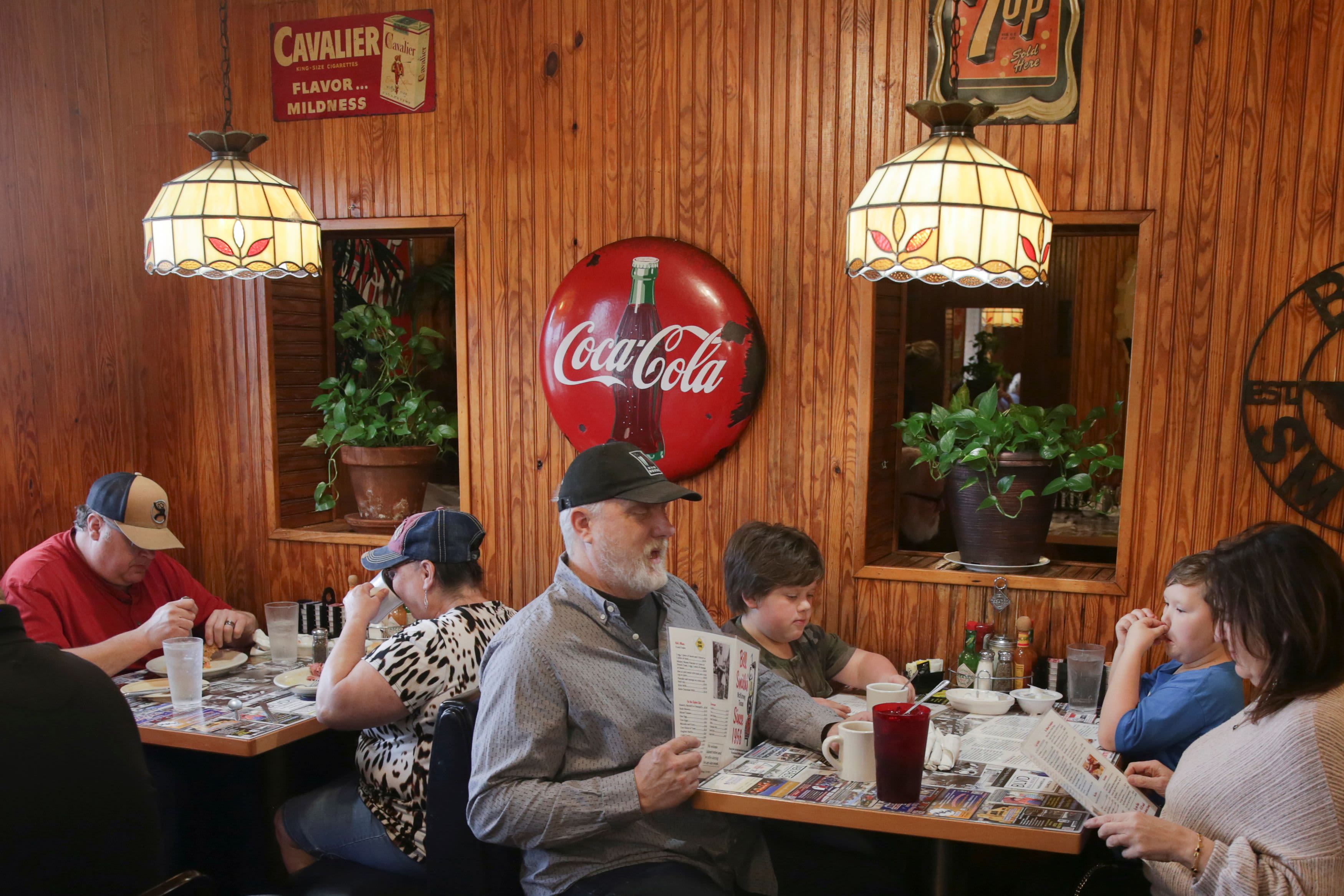People order breakfast at Bill Smith’s Cafe, after Texas Governor Greg Abbott issued a rollback of coronavirus disease (COVID-19) restrictions in McKinney, Texas, March 10, 2021.
Shelby Tauber | Reuters
Since the World Health Organization declared the coronavirus a pandemic one year ago Thursday, new Yelp data showed nearly a half million businesses opened in America during that time, an optimistic sign of the state of the U.S. economic recovery.
Between March 11, 2020 and March 1, 2021, Yelp has seen more than 487,500 new businesses listing on its platform in the United States. That’s down just 14% compared with the year-ago period. More than 15% of the new entities were restaurant and food businesses.
The novel coronavirus, first discovered in China, is believed to have surfaced in Wuhan in late 2019, before spreading rapidly around the world, infecting 118 million people and causing 2.6 million deaths, according to data from Johns Hopkins University.
Virus mitigation efforts in nations all over the world, including the U.S., have ranged from full lockdowns to partial closures to reduced capacity of nonessential businesses and services. Masks and social distancing have been a hallmark of the pandemic. The economic damage from the crisis was swift.
However, according to data compiled by Yelp, which has released local economic impact reports all throughout pandemic, more than 260,800 businesses that had closed due to Covid restrictions, reopened from March 11, 2020 until March 1. About 85,000 of them were restaurant and food businesses.
Justin Norman, vice president of data science at Yelp, sees optimism in the numbers.
“As more and more Americans continue to get vaccinated, case counts continue to lower, and Congress’ Covid relief bill that offers additional aid is distributed, we anticipate businesses that were once struggling over the last year will bounce back,” Norman told CNBC. “We see this evidenced through the 260,000 businesses that have been able to reopen after temporarily closing.”
Of the almost half million new businesses that have opened, about 59% were within the “professional, local, home and auto” category on Yelp.
“The number of new business openings — particularly the high number of new home, local, professional and auto services businesses — also shows great potential for those industries in the future,” Norman said.
Pandemic trends may be here to stay
Yelp said that certain trends borne out of the pandemic may be here to stay. As consumers spend more time at home, Yelp noted an uptick in interest in home improvement. The company saw that average review mentions for home office renovation increased by 75% year over year and bathroom renovations rose by 80%.
“I anticipate that we’ll still see people invest in higher-quality home offices or improving their homes,” Norman said. “With warmer summer months coming and the number of vaccines being administered continuing to increase, people who aren’t planning to return to the office this year may focus on more home improvement projects.”
Yelp’s new business data also shows the restrictions brought on by the pandemic accelerated the need for businesses to adapt by using technology and changing the ways they interact with their customers.
Of the new business openings, the number of food trucks climbed 12% and food delivery businesses were up 128%. ”The increase in food delivery services would have easily been predicted, although we may not have predicted they would stay on the rise a year later,” Norman said.
He also said he was surprised by how local businesses have incorporated the tools technology offers. “It’s been incredibly impressive and encouraging to see how much local businesses, both in large cities and smaller towns, have embraced technology to serve customers during this challenging time.”
Yelp also saw changes in the ways companies specifically interacted with its app. In 2020, 1.5 million businesses updated their hours through Yelp, 500,000 indicated that they were offering virtual services, and more than 450,000 businesses crafted a custom message at the top of their page, to speak directly to customers.
In addition to the positive data about food delivery and restaurants, Norman was surprised to see some trends through the year that indicated a change in how consumers engaged with everyday life. Yelp saw that consumer interest in psychics increased 74% year over year and astrologers rose by 63%. Yelp measures consumer interest in page views, posts, or reviews.
“It was also surprising to find that consumer interest in notaries were up 52% on Yelp, as many federal and state rules allowed remote notarization,” Norman said. “While Yelp data can’t provide an in-depth look into what people were notarizing over the last year, Yelp data does show a trend of couples holding smaller, more intimate weddings, instead of more traditional large wedding celebrations, as well as the housing market seeing an astounding demand coupled with low interest rates and housing prices in certain markets.”
A year on, it’s clear that the businesses that have survived have had to find new ways to operate, and that many of the changes will be permanent. ”We’ve seen more and more businesses embrace app-enabled delivery, software tools like reservations and waitlist and consumer-oriented communications tools like the Covid health and safety measures. The digital local business is here to stay,” Norman said.
